:ה וַיָּ֨מָת שָׁ֜ם משֶׁ֧ה עֶֽבֶד־יְהֹוָ֛ה בְּאֶ֥רֶץ מוֹאָ֖ב עַל־פִּ֥י יְהֹוָֽה
:ו וַיִּקְבֹּ֨ר אֹת֤וֹ בַגַּי֙ בְּאֶ֣רֶץ מוֹאָ֔ב מ֖וּל בֵּ֣ית פְּע֑וֹר וְלֹֽא־יָדַ֥ע אִישׁ֙ אֶת־קְבֻ֣רָת֔וֹ עַ֖ד הַיּ֥וֹם הַזֶּֽה
:ז וּמשֶׁ֗ה בֶּן־מֵאָ֧ה וְעֶשְׂרִ֛ים שָׁנָ֖ה בְּמֹת֑וֹ לֹא־כָֽהֲתָ֥ה עֵינ֖וֹ וְלֹא־נָ֥ס לֵחֹֽה
:ח וַיִּבְכּוּ֩ בְנֵ֨י יִשְׂרָאֵ֧ל אֶת־משֶׁ֛ה בְּעַרְבֹ֥ת מוֹאָ֖ב שְׁלשִׁ֣ים י֑וֹם וַיִּתְּמ֔וּ יְמֵ֥י בְכִ֖י אֵ֥בֶל משֶֽׁה
ט וִֽיהוֹשֻׁ֣עַ בִּן־נ֗וּן מָלֵא֙ ר֣וּחַ חָכְמָ֔ה כִּֽי־סָמַ֥ךְ משֶׁ֛ה אֶת־יָדָ֖יו עָלָ֑יו וַיִּשְׁמְע֨וּ אֵלָ֤יו בְּנֵֽי־יִשְׂרָאֵל֙ וַיַּֽעֲשׂ֔וּ כַּֽאֲשֶׁ֛ר צִוָּ֥ה יְהֹוָ֖ה אֶת־משֶֽׁה
:י וְלֹא־קָ֨ם נָבִ֥יא ע֛וֹד בְּיִשְׂרָאֵ֖ל כְּמשֶׁ֑ה אֲשֶׁר֙ יְדָע֣וֹ יְהֹוָ֔ה פָּנִ֖ים אֶל־פָּנִֽים
:יא לְכָל־הָֽ֨אֹתֹ֜ת וְהַמּֽוֹפְתִ֗ים אֲשֶׁ֤ר שְׁלָחוֹ֙ יְהֹוָ֔ה לַֽעֲשׂ֖וֹת בְּאֶ֣רֶץ מִצְרָ֑יִם לְפַרְעֹ֥ה וּלְכָל־עֲבָדָ֖יו וּלְכָל־אַרְצֽוֹ
:יב וּלְכֹל֙ הַיָּ֣ד הַֽחֲזָקָ֔ה וּלְכֹ֖ל הַמּוֹרָ֣א הַגָּד֑וֹל אֲשֶׁר֙ עָשָׂ֣ה משֶׁ֔ה לְעֵינֵ֖י כָּל־יִשְׂרָאֵֽל
So Moshe, the servant of G-d, died there in the land of Moav, as G-d told him to. He buried him in the glen in the land of Moav, opposite Beit Peor, though no one knows the place he was buried even today. Moshe was 120 years old when he died. His eyes had not weakened, nor had his strength dissipated. The Children of Israel cried for Moshe in the plains of Moav for thirty days, after which the days of crying and mourning for Moshe were completed . . . There never again arose a prophet in Israel like Moshe, whom G-d spoke to face-to-face, [and who could perform] all the signs and wonders which G-d sent him to do in the land of Egypt, against Pharaoh, all his servants and all his land, or any of the mighty acts and awesome sights that Moshe displayed before all the eyes of Israel.(Devarim 34:5-12)
This is no ordinary parshah blurb. Then again, Zot HaBracha is no ordinary parshah, and it is being read on no ordinary Shabbat, but on Simchat Torah. This is Moshe’s farewell speech to the Jewish people, and the Torah’s farewell speech to Moshe Rabbeinu. And, in hindsight, it is an important lesson for our generation, which still has a chance for foresight.
According to the Talmud, Moshe died exactly 120 years to the day that he was born:
The Holy One, Blessed is He, completes the years of righteous (Sotah 13b).
which had been, therefore, the 7th of Adar, 2368. As it turns out, that day came THIRTY-SIX years after the actual oppression began at the hands of the Egyptian taskmasters (Seder Olam 3), a number that always alludes to the Ohr HaGanuz, the Hidden Light of creation with which G-d made creation, and with which He also brings redemption (Sha’arei Leshem, p. 130)
Indeed, when Moshe was born, he exuded this light (Dayah2:179b), as the Talmud points out:
The Chachamim say that when Moshe was born, the entire house filled with light. It is written here, “And she saw that he was good” (Shemos 2:2), and there it is written,”G-d saw the light, that it was good.” (Bereishis1:4). (Sotah 12a)
Kabbalistically, Moshe’s greatness was due to the high level “root” of his soul:
The level of Moshe Rabbeinu was from the Ohr HaGanuz itself and therefore the Torah was given through him, as well as all chidushei Torah throughout time…
He was the “channel” to the Light of the Upper Da’as, which is the level of the Tree of Life . . . the level of the Tifferet of Atzilut that the Da’at is inside. (Dayah 2:255b).
This was why everything about his life was supernatural, and why Miriam, his sister, had invested so much interest in her brother (Sotah 12a).
Therefore, one could say that the redemption began the moment Moshe Rabbeinu was born, for the light to bring about the redemption certainly sparked at that time. And, since he had been meant from the start to be the future redeemer of the Jewish people – some 80 years later! – his birth certainly meant the beginning of the redemption . . . even though the Jewish people, at that time, were in a state of despair from the cruelty of the redemption, as Moshe himself witnessed when he had been old enough to go out into the fields.
And, even though the days of redemption had begun with Moshe Rabbeinu’s birth, he had not known that, and had even been forced into a personal exile, first to Cush and then to Midian (Yalkut Shimoni 1:168) after killing the Egyptian taskmaster (Shemot 2:15). According to various different opinions, he had been somewhere between the tender age of 12 (Shemot Rabbah 5:1) and 60 years (Rebbi Moshe HaDarshan) at the time.
Meanwhile, the slavery worsened for the Jewish people back in Egypt. While in Midian, Moshe married Tzipporah, had two sons, and was a mere shepherd of his father-in-law’s flocks. It was only in his 79th year that Moshe was finally contacted by G-d through the Burning Bush (Shemot 3:4), and sent back to Egypt to get the final stages of redemption under way.
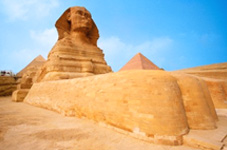 There is no question that Moshe’s return to Egypt had been extremely significant to his enslaved and broken people. One can just imagine the Messianic atmosphere that must have prevailed as Moshe, with his long and flowing white beard and staff engraved with the Name of G-d, moved in the direction of Pharaoh’s palace, unafraid and undeterred. One can only try and imagine the terrible sense of despondency that must have resulted after Moshe left Pharaoh’s palace without the least bit of success, even having caused a worsening of the exile and oppression!
There is no question that Moshe’s return to Egypt had been extremely significant to his enslaved and broken people. One can just imagine the Messianic atmosphere that must have prevailed as Moshe, with his long and flowing white beard and staff engraved with the Name of G-d, moved in the direction of Pharaoh’s palace, unafraid and undeterred. One can only try and imagine the terrible sense of despondency that must have resulted after Moshe left Pharaoh’s palace without the least bit of success, even having caused a worsening of the exile and oppression!
Apparently, it had even been too much for Moshe Rabbeinu to handle, who complained to G-d:
:כב וַיָּ֧שָׁב משֶׁ֛ה אֶל־יְהֹוָ֖ה וַיֹּאמַ֑ר אֲדֹנָ֗י לָמָ֤ה הֲרֵעֹ֨תָה֙ לָעָ֣ם הַזֶּ֔ה לָ֥מָּה זֶּ֖ה שְׁלַחְתָּֽנִי
:כג וּמֵאָ֞ז בָּ֤אתִי אֶל־פַּרְעֹה֙ לְדַבֵּ֣ר בִּשְׁמֶ֔ךָ הֵרַ֖ע לָעָ֣ם הַזֶּ֑ה וְהַצֵּ֥ל לֹֽא־הִצַּ֖לְתָּ אֶת־עַמֶּֽךָ
Moshe returned to G-d and said, “G-d, why have You done such evil to this people? Why have You sent me? Since I came to Pharaoh to speak in Your Name, he has made matters worse for this people. You have not delivered your people at all!” (Shemot 5:22-23).
Could one blame Moshe Rabbeinu for his reaction? True, G-d had warned him that Pharaoh would not at first heed his request to free the Jewish people. However, did anyone mention anything at all about the slavery getting worst as a result? And, could anyone blame the Jewish people for their reaction the second time Moshe Rabbeinu and redemption came calling?
:ט וַיְדַבֵּ֥ר משֶׁ֛ה כֵּ֖ן אֶל־בְּנֵ֣י יִשְׂרָאֵ֑ל וְלֹ֤א שָֽׁמְעוּ֙ אֶל־משֶׁ֔ה מִקֹּ֣צֶר ר֔וּחַ וּמֵֽעֲבֹדָ֖ה קָשָֽׁה
Moshe told it to the Children of Israel, but they did not listen to Moshe because their spirit was broken, and because of the hardness of their work. (Shemot 6:9).
Thus, the situation had looked incredibly beak to everyone – everyone human, that is. From G-d’s perspective, everything was going perfectly according to plan, as He told Moshe Rabbeinu in a somewhat harsh tone:
א וַיֹּ֤אמֶר יְהֹוָה֙ אֶל־משֶׁ֔ה עַתָּ֣ה תִרְאֶ֔ה אֲשֶׁ֥ר אֶֽעֱשֶׂ֖ה לְפַרְעֹ֑ה כִּ֣י בְיָ֤ד חֲזָקָה֙ יְשַׁלְּחֵ֔ם וּבְיָ֣ד חֲזָקָ֔ה יְגָֽרְשֵׁ֖ם מֵֽאַרְצֽוֹ
:ב וַיְדַבֵּ֥ר אֱלֹהִ֖ים אֶל־משֶׁ֑ה וַיֹּ֥אמֶר אֵלָ֖יו אֲנִ֥י יְהֹוָֽה
:ג וָֽאֵרָ֗א אֶל־אַבְרָהָ֛ם אֶל־יִצְחָ֥ק וְאֶל־יַֽעֲקֹ֖ב בְּאֵ֣ל שַׁדָּ֑י וּשְׁמִ֣י יְהֹוָ֔ה לֹ֥א נוֹדַ֖עְתִּי לָהֶֽם
:ד וְגַ֨ם הֲקִמֹ֤תִי אֶת־בְּרִיתִי֙ אִתָּ֔ם לָתֵ֥ת לָהֶ֖ם אֶת־אֶ֣רֶץ כְּנָ֑עַן אֵ֛ת אֶ֥רֶץ מְגֻֽרֵיהֶ֖ם אֲשֶׁר־גָּ֥רוּ בָֽהּ
:ה וְגַ֣ם | אֲנִ֣י שָׁמַ֗עְתִּי אֶת־נַֽאֲקַת֙ בְּנֵ֣י יִשְׂרָאֵ֔ל אֲשֶׁ֥ר מִצְרַ֖יִם מַֽעֲבִדִ֣ים אֹתָ֑ם וָֽאֶזְכֹּ֖ר אֶת־בְּרִיתִֽי
G-d said to Moshe, “Now you will see what I will do to Pharaoh. Through a strong hand he will send them away, and through a strong hand he will drive them out of his land!” G-d told Moshe, “I am Y-H-V-H. I appeared to Avraham, to Yitzchak, and to Ya’akov, by the name of G-d A’lmighty, but by My name, Y-H-V-H, I was not known to them. I have also established My covenant with them, to give them the land of Canaan, the land of their sojourning, where they lived. I have also heard the groaning of the Children of Israel, whom Egypt causes to serve, and I have remembered My covenant.” (Shemot 6:1-5).
As the Talmud explains: “What a shame about the ones who are lost and are not to be found. Many times I revealed Myself to Avraham, Yitzchak, and Ya’akov as E’l Shadda’i, and they never questioned Me, nor did they ask, ‘What is Your Name?’ I told Avraham, ‘Arise, and walk the length and width of the land that I am giving to you.’ (Bereishit 13:17). Yet, when he wanted a place to bury Sarah, he couldn’t find anything until he purchased land for four hundred shekels!” (Sanhedrin 111a).
Even as Moshe Rabbeinu began the Ten Plagues, the Jewish people still served Pharaoh with life-breaking labor. The plagues began in Nissan, 2447, but the Jewish people did not escape slavery until that Rosh Hashanah, 2448 (Seder Olam 3). They wouldn’t actually leave Egypt until the following Nissan, the first Pesach. It probably wasn’t until then, that night, the 15th of Nissan, as the remaining one-fifth of the Jewish population sat there eating the first Pesach sacrifice, that they finally realized that Moshe Rabbeinu was indeed the redeemer, and that redemption was indeed imminent.
Why else would four-fifths of the Jewish population hold out against Moshe Rabbeinu until the ninth plague of darkness, and die during it as a result (Rashi, Shemot 13:18)? That was FOUR-FIFTHS, or about 12,000,000 Jews! How difficult it must have been for the ONE-FIFTH that survived to hold on and have faith in the coming redemption in the face of the incredible doubt and the persistent mockery of the about-to-go four-fifths! How incredibly fortunate they must have felt that night as they ate their Korban Pesach, while the firstborn of Egypt were being killed by the tenth and final plague!
Like with life itself, it is the last moment of the redemption process that reveals what the entire process had been about from the beginning. It is only at the end of the process that it is revealed to us how everything, including the exile itself, was really just the beginnings of the redemption. It has to be that way, for there is a famous principle when it comes to the Jewish people, and that is the “cure always precedes the sickness” (Megillah). In other words, before the golut (exile) can begin, the redemption has to already exist on some level that makes it inevitable.
Why do we need to know this now? Because, Rava says, likewise will it be in Yemot HaMashiach. (Sanhedrin111a)
Setting up a parallel between Yemot HaMashiach and Yemot Geulat Mitzrayim. And, as we have said on numerous occasions, he is not the only one to create such a parallel. Perhaps the most stunning one is from the Arizal, who states:
Now you can understand the meaning of, “Behold, you shall die with your fathers, and this people will rise up”(Devarim 31:16), which is considered to be one of the verses that has no apparent explanation (Yoma 56a). However, it can be explained with the words “rise up” referring to that which comes before and after them, and both explanations are true. For, in the future, Moshe himself will reincarnate and return in the last generation, as it says, “you will die with your fathers and rise up.” However, in the final generation, the “Dor HaMidbar” will also reincarnate with the Erev Rav, and this is what the posuk also says, “this people will rise up.” Hence, there is not a single generation in which Moshe Rabbeinu does not return b’sod, “The sun rises and the sun sets” (Koheley 1:5) and,”One generation goes and another comes” (Koheles1:4), in order to rectify that generation. Thus, the Generation of the Desert along with the Erev Rav reincarnate in the final generation, “like in the days of leaving Egypt”(Michah 7:15). As well, Moshe will arise among them since they are all from the sod of Da’as: Moshe, the Generation of the Desert, and the Erev Rav, as we have explained in Parashas Shemot. (Sha’ar HaGilgulim, Chapter 20)
There are many more. However, the main point here is that for the “average” Jew to believe that we are already in the throes of the Final Redemption, as so many factors seem to indicate, he believes he must see the enemies of Israel fall, the Jewish people raised up, a leader to trigger it all, and an unlimited amount of miracles at his disposal to make it all happen. If he survives the End-of-Days, he will not be disappointed. However, what will disappoint him is the way he totally overlooked 95 percent of the redemption process, mistaking it for exile instead.
As the prophet has said:
ט וְהֵֽבֵאתִ֚י אֶת־הַשְּׁלִשִׁית֙ בָּאֵ֔שׁ וּצְרַפְתִּים֙ כִּצְרֹ֣ף אֶת־הַכֶּ֔סֶף וּבְחַנְתִּ֖ים כִּבְחֹ֣ן אֶת־הַזָּהָ֑ב ה֣וּא | יִקְרָ֣א בִשְׁמִ֗י וַֽאֲנִי אֶֽעֱנֶ֣ה אֹת֔וֹ אָמַ֙רְתִּי֙ עַמִּ֣י ה֔וּא וְה֥וּא יֹאמַ֖ר יְהֹוָ֥ה אֱלֹהָֽי
“There will be in the land – the word of Hashem – two portions will be cut off and perish, and the third will be left in it. I will bring that third into fire and purify it as one purifies silver, and I will refine it as one refines gold.” (Zechariah13:9)
And, for all we know, what happened in Egypt was just to teach us at the End-of-Days what it takes to survive the final exile in order to witness and enjoy the Final Redemption, may it happen in our time, and may we enter it in peace and with joy.
Have a great Shabbat and Yom Tov, PW
***
Pinchas Winston is the author of over 95 books on various topics that deal with current issues from a traditional Jewish perspective. He has also written on the weekly Torah reading since 1993, called “Perceptions”, as well as on current topics and trends affecting Jewish history, past and present. One of his missions is to make the depth and beauty of the more mystical teachings of Torah understandable and accessible to those who can really benefit from them. Visit his website at thirtysix.org.
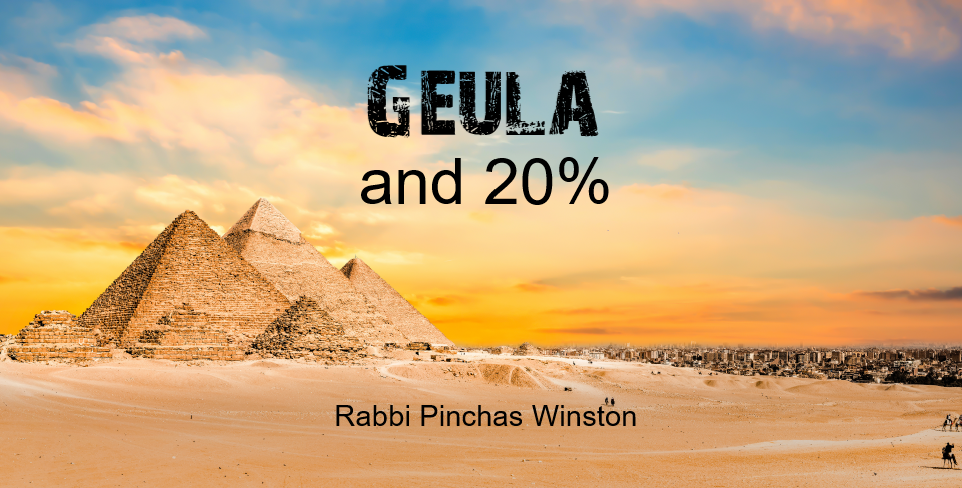

 There is no question that Moshe’s return to Egypt had been extremely significant to his enslaved and broken people. One can just imagine the Messianic atmosphere that must have prevailed as Moshe, with his long and flowing white beard and staff engraved with the Name of G-d, moved in the direction of Pharaoh’s palace, unafraid and undeterred. One can only try and imagine the terrible sense of despondency that must have resulted after Moshe left Pharaoh’s palace without the least bit of success, even having caused a worsening of the exile and oppression!
There is no question that Moshe’s return to Egypt had been extremely significant to his enslaved and broken people. One can just imagine the Messianic atmosphere that must have prevailed as Moshe, with his long and flowing white beard and staff engraved with the Name of G-d, moved in the direction of Pharaoh’s palace, unafraid and undeterred. One can only try and imagine the terrible sense of despondency that must have resulted after Moshe left Pharaoh’s palace without the least bit of success, even having caused a worsening of the exile and oppression!

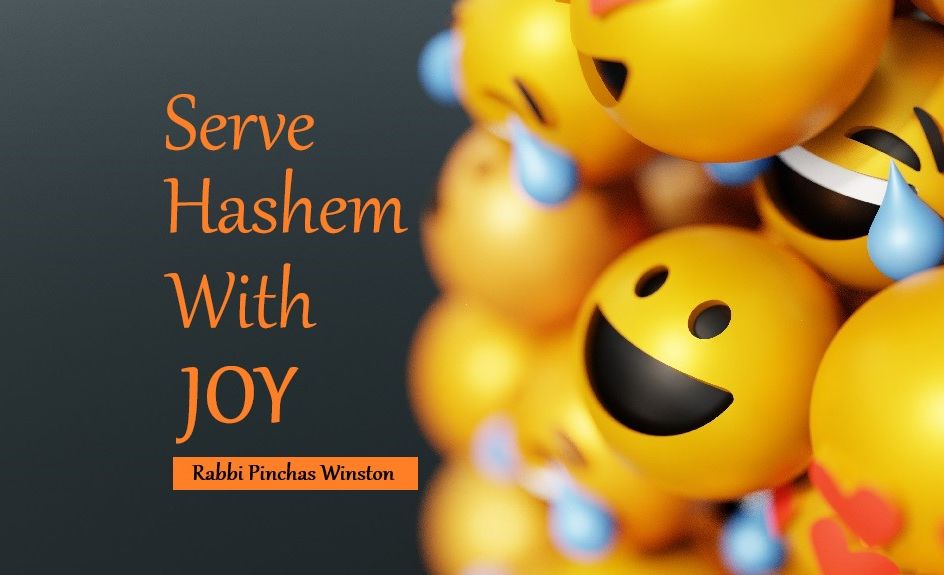
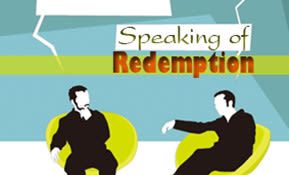
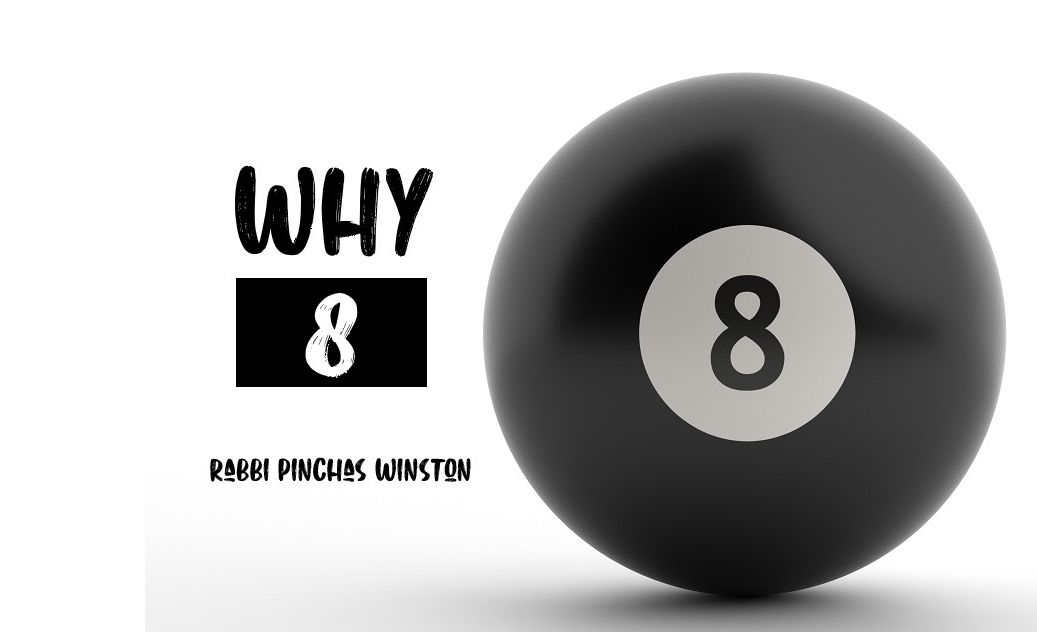
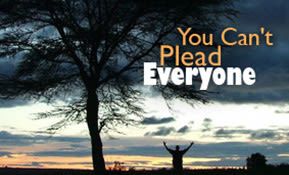

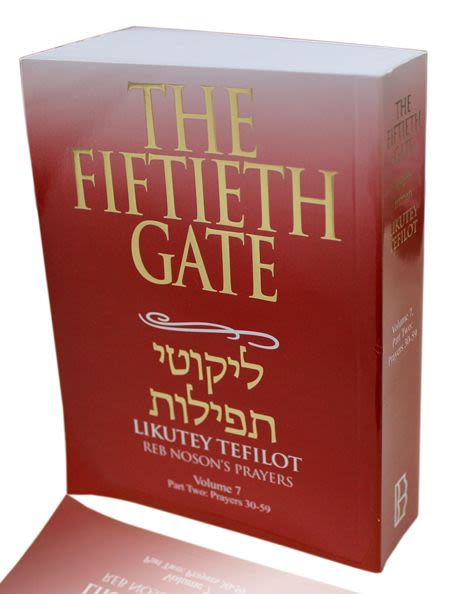
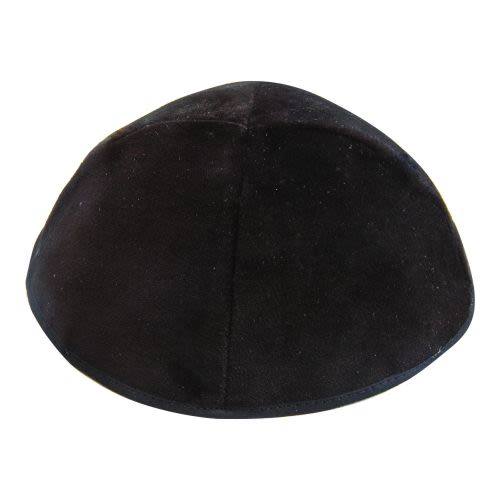
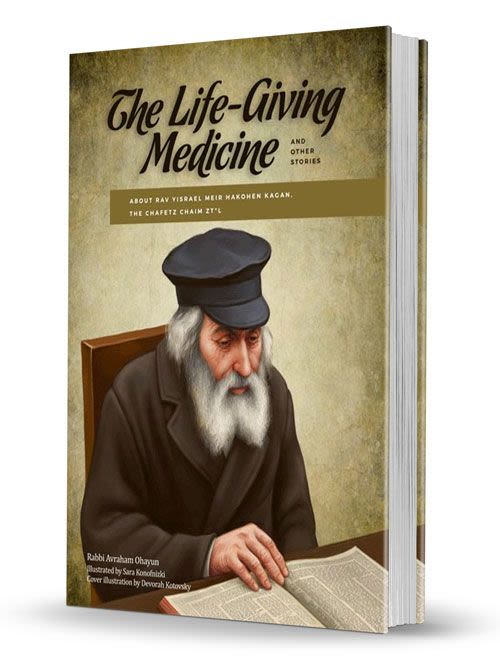
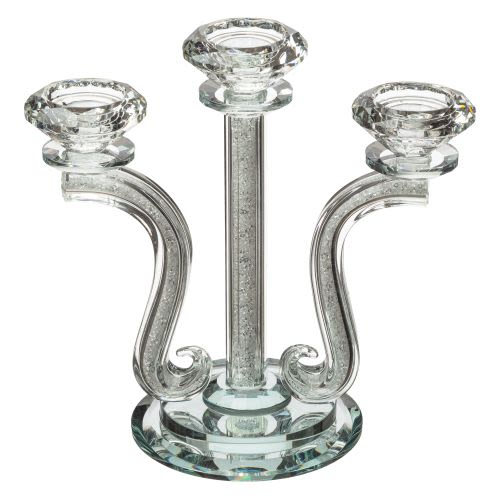
Tell us what you think!
Thank you for your comment!
It will be published after approval by the Editor.